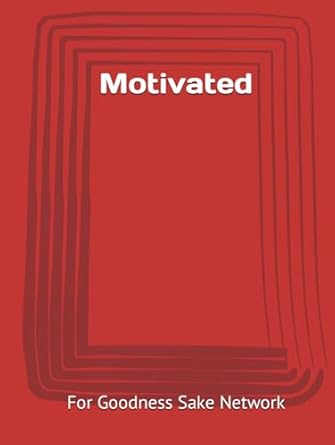Question
Case Study/Reference: You have just hung up from speaking with your friend Morgan and your supervisor is due in your office any time now. You
Case Study/Reference:
You have just hung up from speaking with your friend Morgan and your supervisor is due in your office any time now.
You have known Morgan for many years. You attended the same high school and knew Morgan as an acquaintance but wouldn't say the two of you were friends. Whereas you enjoyed academic and athletic pursuits, Morgan was rebellious and often in trouble. During high school, it was a known fact that Morgan had been caught shoplifting but didn't suffer any real consequences. You had also seen Morgan cheat on exams in high school on more than one occasion. You also know that Morgan had confessed to often stealing money from his or her parents and would arrive late and leave early from a part-time job at the local McDonald's but would write in the full shift on time sheets.
You and Morgan both attended the same college nearly 500 miles away. You each majored in business, had a couple of classes together, and began sharing rides home. You got to know Morgan, and you were even glad to see a familiar face while you were so far from home. You were both accepted into the college's MBA program, and over the course of these college years, you became very good friends with Morgan; you were even in Morgan's wedding following graduation. Coincidentally, you both received attractive job offers (in separate departments) from the major employer in your hometown; you both accepted the offers and returned home.
Morgan and his spouse frequently socialize with you and your spouse. They often come over on weekends, and you usually meet for lunch at least once a week. Although Morgan has matured and "straightened out" for the most part, you believe that Morgan's ethical and moral standards are sometimes questionable. For example, last fall Morgan was caught being unfaithful to his spouse. Thankfully, they were able to repair their marriage, and this has never happened again. Morgan has also confessed to you that he recently lied to a supervisor to gain additional time to complete an assignment. Morgan often copies and mails personal items at the company's expense and even failed to report to payroll that a personal expenditure had not been deducted from the last paycheck. Furthermore, Morgan cheated on income taxes a few years ago and continues to smoke marijuana on occasion. You don't mean to be keeping an ethics balance sheet on Morgan, but you have had several private discussions with Morgan regarding the questionable nature of these types of behaviors. You believe that these conversations have helped Morgan to see things in a new light and have positively impacted his behavior.
You've recently been promoted to District 4 manager. Your regional manager is on her way to meet with you to get your recommendation for filling the District 3 manager position. Morgan has just phoned to ask for your support and recommendation for this position. To Morgan's benefit, he has been a hard worker for this company, has always had positive evaluations, and is well liked. Although you feel loyalty to Morgan and know that Morgan is a good employee, you also want to make a good impression in your new position and wonder if Morgan is really the best (and safest) person to recommend for the job.
Your regional manager has just arrived at your office. She gets right to the point, asking if you have any recommendations for the District 3 manager's position. Do you recommend Morgan?
Questions: What responsibilities or obligations do the reader and Morgan owe to themselves, the organization, their profession and their colleagues?
- Does a company have the right to be interested in employees' off-work behavior? (Example: Social Media) At what point does personal life spill over into "work life"?
- Should an applicant be asked to give an organization access to social media accounts as a potential condition of employment? Why or why not?
- Should friendships in the workplace influence decision making? Should Morgan have asked for the recommendation?
- How is Morgan any different from you or me? We have all made mistakes in our past, what is the implication in judging others when we may be guilty, too?
- Finally, would you or would you not recommend Morgan? Why?
Step by Step Solution
There are 3 Steps involved in it
Step: 1

Get Instant Access to Expert-Tailored Solutions
See step-by-step solutions with expert insights and AI powered tools for academic success
Step: 2

Step: 3

Ace Your Homework with AI
Get the answers you need in no time with our AI-driven, step-by-step assistance
Get Started


